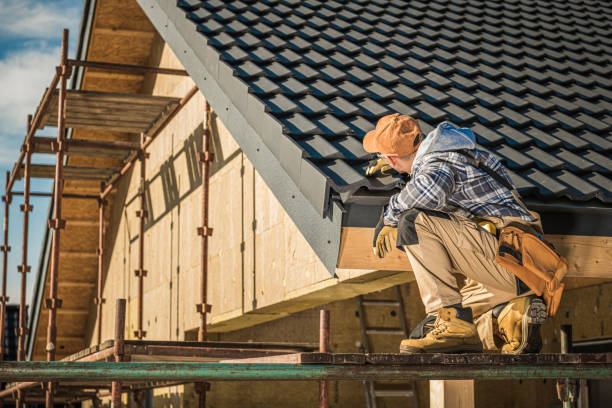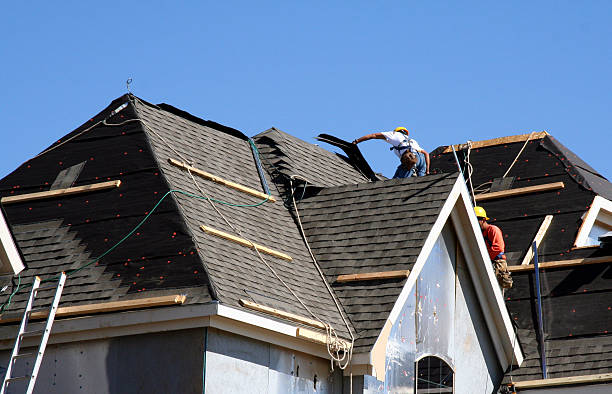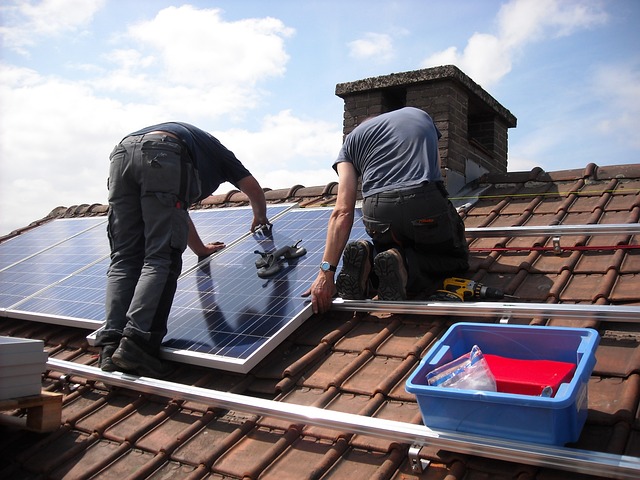Table of Contents
Roofing jobs are pivotal in safeguarding homes from the elements while enhancing their visual appeal. This article explores the significance of roofing, the types of roofing materials, the process of roof installation, maintenance tips, and the importance of professional expertise.

Importance of Roofing
Roofing serves as the first line of defense against weather elements, providing structural integrity and insulation for homes:
Weather Protection: Roofs shield homes from rain, snow, wind, and sunlight, preventing water damage, mold growth, and structural deterioration.
Energy Efficiency: Properly insulated roofs regulate indoor temperatures, reducing heating and cooling costs and enhancing energy efficiency.
Aesthetic Appeal: Well-maintained roofs enhance curb appeal, increasing property value and contributing to the overall aesthetics of homes.
Types of Roofing Materials
Asphalt Shingles: Affordable and versatile, asphalt shingles are popular for their durability, variety of colors, and ease of installation.
Metal Roofing: Known for longevity and weather resistance, metal roofs offer energy efficiency and come in various styles such as standing seam and corrugated metal.
Tile Roofing: Clay or concrete tiles provide durability, fire resistance, and aesthetic appeal, suitable for Mediterranean and Spanish-style homes.
Slate Roofing: Natural slate offers elegance, durability, and exceptional longevity, making it a premium choice for high-end homes.
Roof Installation Process
Assessment and Planning: Roofing contractors assess existing roofs, recommend suitable materials, and provide cost estimates for installation or replacement.
Preparation: Old roofing materials are removed, underlying structures inspected for damage, and necessary repairs or reinforcements are made.
Installation: Roofers install underlayment, flashing, and roofing materials in accordance with manufacturer specifications and local building codes.
Final Inspection: A thorough inspection ensures the roof is properly installed, sealed, and meets quality standards for durability and weather resistance.

Maintenance and Repair
Regular Inspections: Routine inspections identify signs of damage, wear, or deterioration, allowing for timely repairs and maintenance.
Cleaning and Debris Removal: Clearing debris, leaves, and branches from gutters and roof surfaces prevents water buildup and potential damage.
Repair Services: Prompt repairs address leaks, damaged shingles, flashing issues, and other roof-related issues to prevent further damage and maintain structural integrity.
Importance of Professional Expertise
Safety: Roofing jobs involve working at heights and handling heavy materials, requiring trained professionals equipped with safety gear and proper techniques.
Expertise and Quality: Experienced roofers ensure proper installation, use of quality materials, and adherence to industry standards for long-lasting performance.
Warranty and Insurance: Hiring licensed contractors provides access to warranties on materials and workmanship, along with liability insurance coverage for accidents or property damage.
Environmental Considerations
Sustainable Materials: Choosing eco-friendly roofing materials like recycled shingles or energy-efficient options reduces environmental impact and promotes sustainability.
Energy Savings: Reflective roofing materials and proper insulation contribute to reduced energy consumption, supporting green building initiatives and sustainability goals.
Trends in Roofing
Smart Roofing Technology: Integration of solar panels, smart sensors, and energy-efficient roofing systems enhance functionality and sustainability.
Green Roofs: Growing popularity of green roofs with living vegetation provides natural insulation, improves air quality, and supports urban biodiversity.

Conclusion
Roofing jobs are integral to maintaining the integrity, safety, and aesthetic appeal of residential properties. By understanding the importance of quality materials, professional installation, regular maintenance, and sustainable practices, homeowners can ensure durable and energy-efficient roofs that enhance property value and comfort. Investing in professional roofing services not only protects homes from weather elements but also promotes sustainability and contributes to long-term savings in energy costs and maintenance expenses. Embracing advancements in roofing technology and materials empowers homeowners to make informed decisions that enhance the resilience and beauty of their homes for years to come.